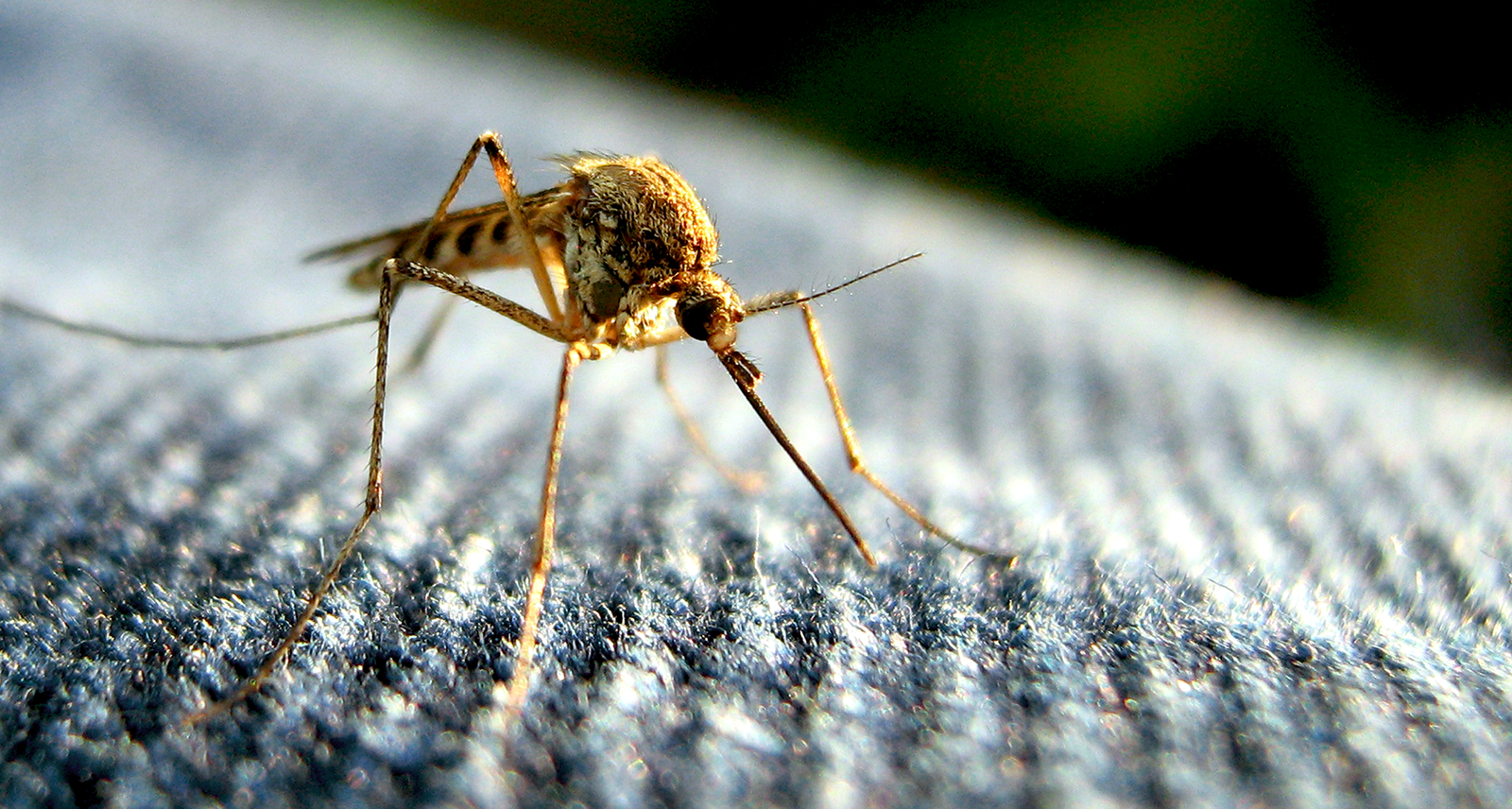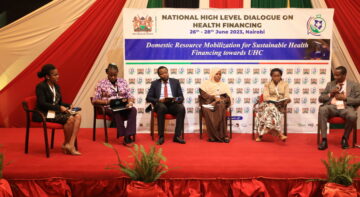Blogs

Nairobi – As we mark the World Mosquito Day today, it is a sad reminder that Malaria still kills hundreds of thousands of people every year, majority of these people in Africa. According to the World Health Organisation (WHO), Malaria killed 409,000 people in 2019, and 94% of these deaths were in Africa. For those who survive the disease, they have many horrifying tales to tell because many get Malaria every so often, especially for those living in Malaria endemic regions.
I have many horrifying tales of my experience with Malaria because I grew up in the Malaria-endemic region of Western Kenya. One of these tales is when I passed out in school when I was in Primary-4 because I had refused to take the very bitter Quinine tablets. My Mum was called to take me to hospital and by the time she arrived, I was in “hallucination mode” because all I remember is seeing two Mums lifting me up; and the next time I woke up, I was in a nearby health facility. My parents still live in this region, which means I visit them often and so every time I visit Western Kenya without taking prophylaxis, I can be sure I will come back with Malaria. But this blog is not about my horrifying Malaria tales, so I will not delve much more into that.
Although many people in sub-Saharan Africa have suffered from Malaria, many are not aware of ongoing efforts to develop and test new tools with potential to eliminate Malaria. In a recent study by the African Institute for Development Policy (AFIDEP) on the “Landscape and Political Economy Analysis of Emerging Health Technologies in Sub-Saharan Africa”, we found that apart from the researchers developing these new tools and their funding agencies, other stakeholders including journalists, civil society actors, and policymakers know little, if anything, about the ongoing research on emerging health technologies, including those technologies being developed with potential to eliminate Malaria.
Needless to say, current tools being used for Malaria control and treatment have not been able to eliminate the disease either because of their own inadequacies or ineffective implementation of these tools, or both (link). This is the main motivation behind the ongoing efforts to develop and test new tools with potential to eliminate Malaria.
According to the recent landscape study by AFIDEP, some of the tools being developed include: Malaria vaccine (clinical trials stage) in Burkina Faso and Kenya; gene drive mosquitoes (laboratory trials stage) in Burkina Faso, Mali and Uganda; attractive sugar baits (field trials stage) in Kenya and Mali, sterile insect technology (laboratory trials stage) in South Africa, biocontrol/larvicide control in Rwanda, Tanzania and Zimbabwe; drones for larvicide control (field trials stage) in Rwanda, and Ivermectin drug (laboratory trials stage) in Burkina Faso, Liberia and Senegal.
Do gene drives offer any hope for Malaria elimination in Africa?
One of the tools being explored for testing on the continent for Malaria control and elimination is the use of gene drive mosquitoes. Gene drives refers to “a genetic modification designed to spread through a population at higher-than-normal rates of inheritance” (link). In this case, gene drive mosquitoes are Malaria transmitting mosquitoes that are genetically modified to resist the parasite that causes Malaria. Do not get me wrong, there are no gene drive mosquitoes being tested on the continent just yet. In fact, the ongoing research is in so early stages that it will be another 10 years before we can deploy gene drive mosquitoes for Malaria control and elimination, if the technology is proven safe and effective (link).
The Target Malaria Research Consortium is in very early stages of exploring the potential of testing gene drive mosquitoes for Malaria control and elimination in sub-Saharan Africa. This work is going on in Burkina Faso, Ghana, Mali and Uganda. In Burkina Faso, the Target Malaria team achieved a milestone in 2019 when they released genetically modified sterile male mosquitoes in Bana village (link). The mosquitoes were genetically-modified to be sterile, which means they died without any offspring; and being male mosquitoes, they did not bite people since male mosquitoes do not bite. These were not gene drive mosquitoes, and their release was not to test these as a vector control tool. The release was meant to help the Target Malaria team to work closely with the stakeholders and the regulatory authorities; provide information regarding the behaviour of modified mosquitoes in the field, and serve as a capacity-building opportunity for the team on how to import, rear, transport and release and monitor non-gene drive genetically modified mosquitoes. The results of this release can be read at this link.
The research on gene drive mosquitoes in Mali and Uganda is still in much earlier stages compared to Burkina Faso. In Mali, the research is still at laboratory trials stage. In Uganda, the research is still in early stages focused on entomological mosquito collections and baseline studies on mosquito dynamics and behaviour. In Ghana, there is no intention to test gene drive mosquitoes as the focus of the research there is to assess ecological consequences of reducing or eliminating Malaria-causing mosquitoes (the Anopheles gambiae).
But given the novelty of the gene drive technology, there are concerns around safety for humans and the environment since no engineered gene drive has been released in the wild yet (link). Dr Fedros Okumu, a leading African scientist and Director of the Ifakara Health Institute in Tanzania has been quoted as saying “gene drives are unlike any other ecological fix ever tested… Gene drives will spread by themselves… We’ve got to prepare people and share information” (link). Gene drives have the potential to alter ecosystems in ways that remain unknown since research on this is still ongoing. For these reasons, WHO has provided guidelines on “standards that foster quality and consistency in the processes for developing, testing and regulating these new genetic technologies” (link).
But the development and testing of new health technologies is not without challenges
Our landscape study revealed a range of challenges affecting the ongoing development and testing of new transformative health technologies and tools on the continent. A major challenge raised in relation to the ongoing exploratory work on gene drives for Malaria control is the gap in existing regulatory policy and legal framework for guiding the conduct of research on gene drives. Given the novelty of the gene drives technology, the existing policy and legal frameworks in African countries do not provide guidance on the development and testing of this technology. To respond to this gap, the African Union, which in 2017 committed to invest in development and regulation of gene drive technology for Malaria control and elimination (link), has been leading efforts to support member countries to ensure that research on and development of new genetically-based vector control tools are conducted in a responsible manner in full compliance with safety requirements for human health and the environment for the benefit of African communities (link).
Another major challenge facing these efforts is the low priority and investments in research and innovation by African governments. Although African countries committed to allocate at least 1% of their gross domestic product (GDP) to research and innovation way back in 1980, most countries have failed to fulfil this commitment (link). What this means is that much of the ongoing efforts to develop new tools for tackling persisting and emerging health challenges are funded by external actors. This has implications on many fronts, including the ownership of the technology if proven safe and effective. As we have seen with the COVID-19 vaccine, even though some of the vaccines were tested in African countries, the vaccines have remained largely inaccessible for the continent. This means that African governments must prioritise and allocate substantial resources to research and innovation, and explore balanced partnerships with international players so that they can drive these efforts for the benefit of their citizens. For the ongoing exploratory work on gene drives for Malaria control and elimination in Africa, Target Malaria has committed to ensuring that if proven to work and safe, the “technology would be available to any countries that wanted to use it without any commercial gain or profit” (link).
Voices, actions and leadership of Africans must be intensified
One thing COVID-19 has shown us is that we must take full responsibility for our health and wellbeing. “We” here includes Africans living on the continent (citizens/communities), government officials, journalists, representatives of civil society, business and private sector actors, and scientists. The innovation and resilience with which we have faced the COVID-19 pandemic must yield ground for something bigger to change the trajectory of disease on the continent.
To build on these gains, AFIDEP is working with partners to operationalise the Platform for Dialogue and Action on Health Technologies in Africa. The Platform is offering space for Africans including policymakers, scientists, journalists, business and private sector actors, civil society representatives, citizens and communities to engage, stimulate and drive action needed to ensure the development, testing and deployment of emerging health technologies where these are proven safe and effective, becomes a top priority for the continent. The Platform is also ensuring that the voices of Africans are heard in global efforts on emerging health technologies so that these technologies respond to unique needs in African contexts.
The theme of this year’s World Mosquito Day is Reaching the zero-malaria target. We call on fellow Africans, African governments, journalists, scientists, civil society, private sector, and friends of Africa to intensify efforts to eliminate Malaria. Engage with us through the Platform for Dialogue and Action on Health Technologies in Africa to connect with other actors and accelerate action on the development, testing, and deployment of emerging technologies needed to transform health and the quality of life on the continent.
———————————————————-
Rose Oronje, Ph.D., is Director, Public Policy and Communication at the African Institute for Development Policy (AFIDEP).
Related Posts





